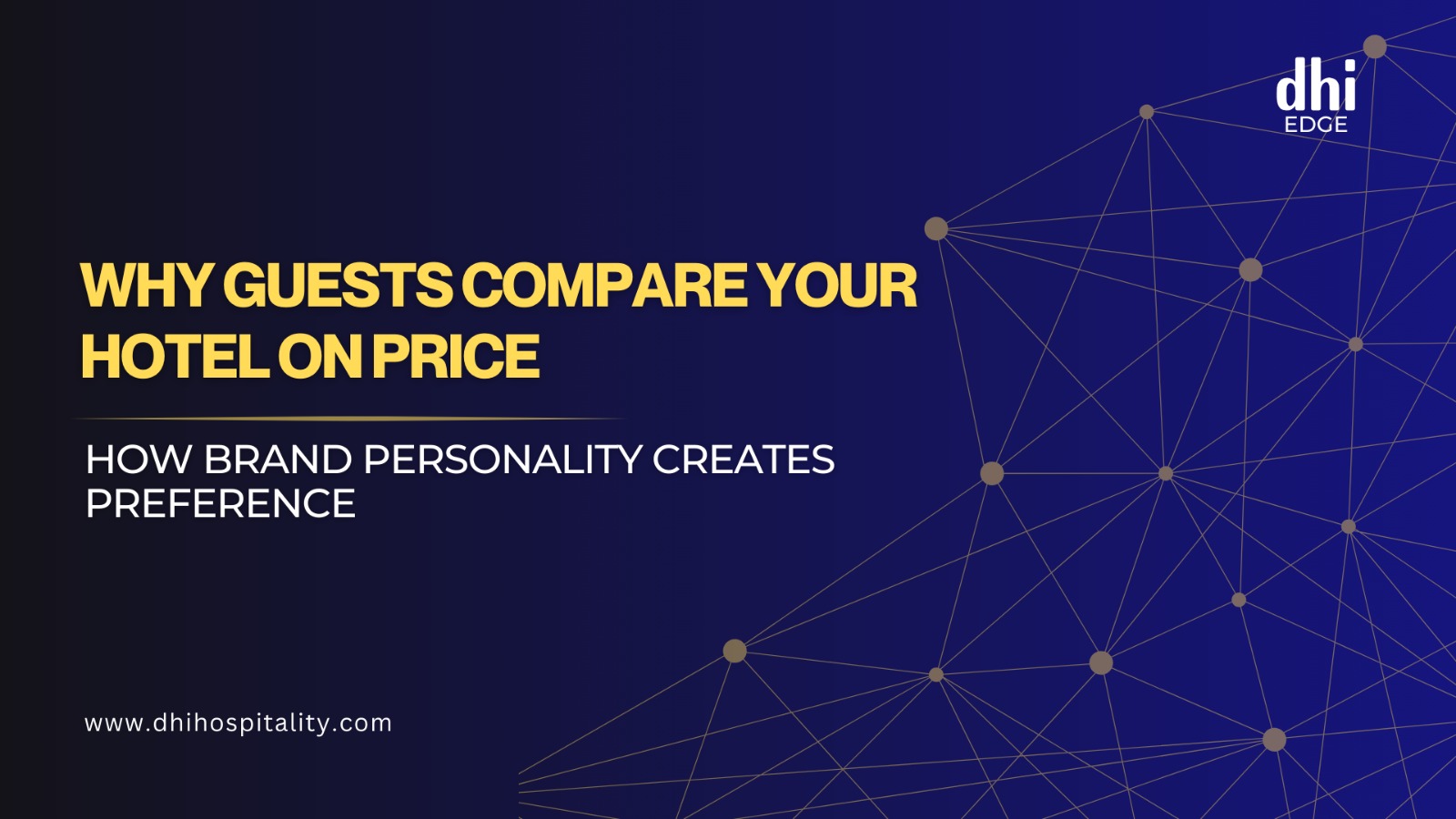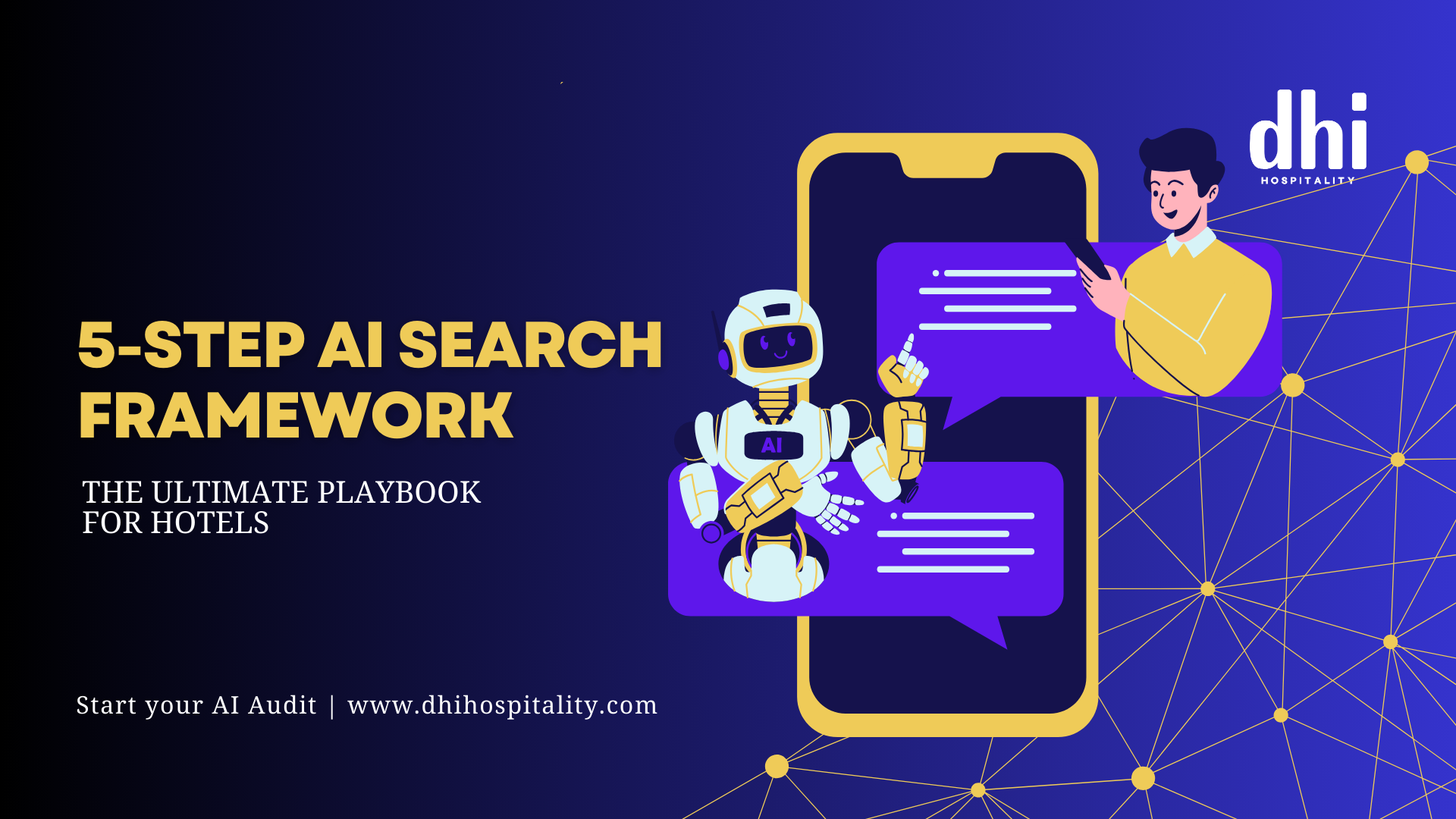
The hospitality industry is experiencing its biggest shift since online bookings began. 58% of users have already replaced traditional search engines with AI-driven tools for product and service discovery, and approximately 50% of travelers are comfortable with AI handling their travel planning.
When a guest asks ChatGPT, "What's the best family resort in the Maldives with a kids club and overwater villas?" they expect instant, personalized recommendations. If your hotel isn't mentioned in that AI-generated response, you're invisible to this rapidly growing market.
Welcome to Generative Engine Optimization (GEO) the process of making your content and brand easy for AI engines to find, trust, and use in their answers. This is your ultimate playbook to dominate AI search in 2025 and beyond.

The numbers tell the story: around 60 percent of North American leisure travelers under 45 said they used AI for travel inspiration and planning. Even more compelling, 64% of customers express readiness to purchase products suggested by AI.
This isn't about the future—it's happening now. 63% of websites report traffic coming from AI search, and 55% of hoteliers believe that AI will revolutionize the hotel industry.
Traditional SEO gets you ranked on search results. GEO gets you recommended by name in AI conversations. When travelers ask AI for hotel suggestions, they're not browsing—they're buying. The AI has already pre-qualified your property based on their specific needs.
dhi hospitality’s 5-Step GEO Framework
Based on current research and industry data, we've developed the definitive framework for hotels to win in AI search. This isn't theory, it's a proven system being implemented by forward-thinking properties worldwide.
The Reality Check: Most hotels score zero when tested across AI platforms.
What to Do:
• List 10-15 specific queries your ideal guests ask (e.g., "best eco-friendly resort in Costa Rica with yoga classes")
• Test these in ChatGPT, Claude, Perplexity, and Google's AI Overviews
• Document every mention: Are you cited by name? Described accurately? Missing entirely?
• Compare against your top 3 competitors
Pro Tip: Focus on conversational, specific queries rather than generic terms. AI systems excel at understanding context and intent.
The Science: GEO strategies are designed to make content retrievable, re-rankable, and reference-worthy within AI-generated search results.
What to Do:
• Analyze which competitors consistently appear in AI responses
• Identify the content formats AI systems prefer (detailed FAQs, comprehensive guides, specific amenity descriptions)
• Map the language patterns AI uses when describing hotels
• Note which sources AI systems cite most frequently
Key Insight: AI systems prioritize authoritative, comprehensive content over keyword-stuffed marketing copy.
The Foundation: GEO entails optimizing foundational technical website elements that allow AI engines to discover, read, and include a brand's content in generative AI responses.
• Detailed Amenity Descriptions: Instead of "pool," write "25-meter infinity pool with underwater music system and poolside cabanas, open 6 AM-10 PM daily"
• Local Authority Content: Comprehensive neighborhood guides, seasonal event calendars, insider dining recommendations
• FAQ-Style Pages: Address real guest questions in conversational language
• Comparison Content: "Why choose our resort over [competitor]" with specific differentiators
• Structured data markup for all hotel information
• Fast loading speeds (AI systems prioritize user experience)
• Mobile-optimized content architecture
• Clear information hierarchy with logical internal linking
The Shift: AI systems prefer natural, conversational content over corporate jargon.
• Write like you're answering a friend's travel question
• Use specific examples and concrete details
• Address follow-up questions proactively
• Include seasonal variations and special circumstances
• Embed social proof naturally within descriptions
• Before: "Luxury accommodations with world-class amenities"
• After: "Our ocean-view suites feature private balconies with outdoor soaking tubs, perfect for watching Santorini's famous sunsets. Each suite includes a personal concierge and complimentary champagne service at check-in."
Tracking Success: Traditional analytics don't capture AI search performance.
• Brand mention frequency across AI platforms
• Quality and context of AI citations
• Direct traffic increases from AI-influenced searches
• Query coverage: percentage of target questions where you appear
• Competitive positioning in AI responses
• Test 20 new guest queries across AI platforms
• Document changes in your AI visibility
• Analyze competitor AI performance
• Update content based on new AI response patterns
• Expand FAQ content based on real guest questions
Leverage Guest Reviews: Approximately 80% of hotels use, or plan to use, AI and data analytics to help them present guests with personalized offers. Encourage detailed reviews that mention specific amenities, experiences, and local insights. AI systems frequently reference review content.
Create Seasonal Content: Develop comprehensive guides for different seasons, events, and travel purposes. "Best time to visit [destination]," "What to pack for [your location] in winter," and "Hidden gems near [hotel name]" all perform well in AI search.
Build Partnership Content: Collaborate with local restaurants, attractions, and service providers to create comprehensive destination resources. AI systems value interconnected, authoritative local information.
Develop Proprietary Insights: Original research about your destination, guest preferences, or local trends creates unique value that AI systems can't find elsewhere.
The AI search revolution is accelerating. Hotels that establish GEO authority now will benefit from compounding advantages as AI systems learn to trust and prioritize their content.
Early movers are already seeing results: properties implementing comprehensive GEO strategies report improved direct booking rates, higher-quality guest acquisitions, and reduced dependence on high-commission OTAs.
The question isn't whether AI search will impact your hotel—it's whether you'll be recommended or rendered invisible.
At dhi hospitality, we've seen the transformation that comprehensive GEO implementation brings to hotel marketing. Properties that appeared in zero AI responses now dominate recommendations in their markets.
This ultimate playbook provides the framework, but execution requires expertise. AI systems are constantly evolving, and staying ahead requires dedicated focus and specialized knowledge.